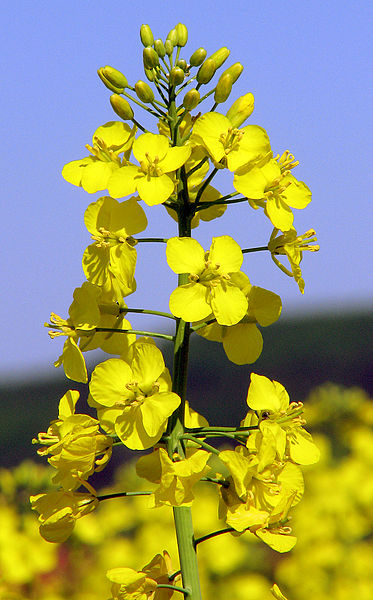Developing new seeds for farmers
A new $3.885 million agricultural research project begins
A team led by Robert Duncan in the Faculty of Agricultural and Food Sciences will produce world-class hybrid herbicide-tolerant (HT) high erucic acid rapeseed (HEAR) cultivars thanks to new funding announced on Oct. 17.
This research is being funded with a Collaborative Research and Development grant awarded by the Natural Sciences and Engineering Research Council of Canada (NSERC) of $1.925 million with another $1.96 million from Bunge Canada and DL Seeds for a total of $3.885 million over the next five years.
“NSERC’s partnership programs aim to create value add for businesses, researchers and our next generation of scientists and engineers, by connecting Canada’s base of excellent post-secondary research and training to the needs of businesses,” said Janet Walden, Chief Operating Officer of NSERC. “This project, Dr. Duncan’s first with NSERC, is an example of a winning partnership. It brings his expertise, the strength in agricultural research of the University of Manitoba, and the resources and knowledge of the company together to accelerate solutions to important Canadian challenges.”
“One of the University of Manitoba’s top priorities is developing safe, secure and sustainable food and bio-products, one of our historic strengths,” said President and Vice-Chancellor Dr. David Barnard, “This grant from Natural Sciences and Engineering Research Council of Canada and support from our industry partners will allow the University of Manitoba to build on our legacy of groundbreaking agricultural research.”
This project will incorporate expertise in plant breeding, genomics, and disease resistance at the University of Manitoba (Robert Duncan, Dilantha Fernando and Genyi Li), expertise in hybrid development from DL Seeds and a tradition of oilseed processing from Bunge Canada.
Research at the University of Manitoba is partially supported by funding from the Government of Canada Research Support Fund.







